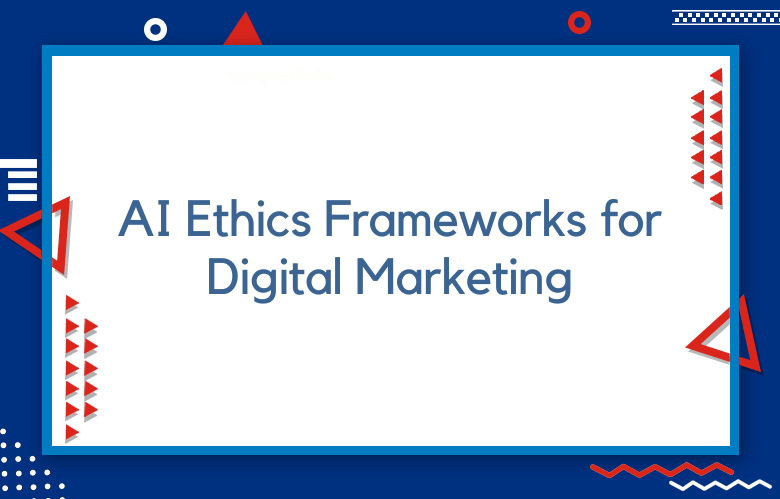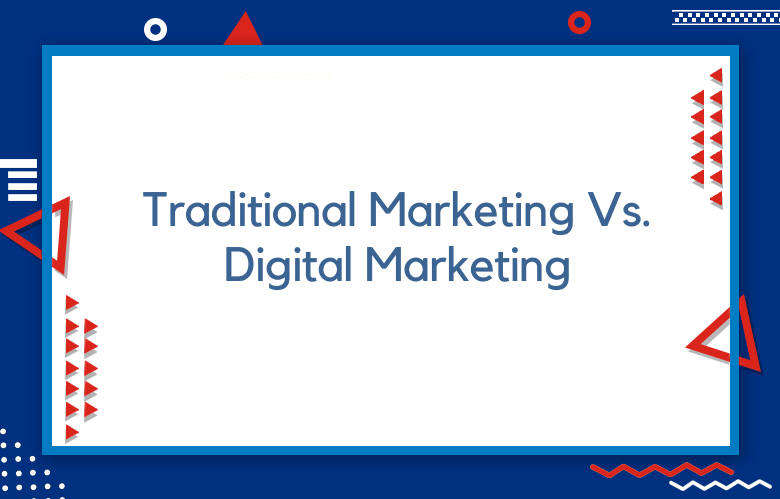AI Ethics Frameworks for Digital Marketing

As artificial intelligence (AI) becomes increasingly embedded in digital marketing strategies, establishing robust AI ethics frameworks is essential to guide responsible use, ensuring that these technologies benefit businesses and consumers while minimizing potential harm. An AI ethics framework in digital marketing encompasses a set of principles and guidelines designed to address ethical considerations such as transparency, fairness, privacy, and accountability in deploying AI-driven marketing tools and tactics.
AI Ethics Frameworks for Digital Marketing
The development and implementation of AI ethics frameworks in digital marketing are driven by the recognition that AI technologies, while robust, can inadvertently perpetuate biases, infringe on user privacy, and lead to opaque decision-making processes if not carefully managed. These frameworks aim to navigate the complex interplay between leveraging AI for personalized and efficient marketing and safeguarding consumer rights and societal values.
Critical components of an AI ethics framework for digital marketing include:
Transparency
Clear communication about how AI is used in marketing campaigns, including data collection and processing methods, to build trust with consumers.
Fairness
Ensure AI algorithms are free from biases that could lead to unfair treatment of certain groups and promote inclusivity in marketing practices.
Privacy
We adhere to best practices and regulations in data privacy to protect sensitive consumer information, emphasizing data minimization and secure data handling.
Accountability
We are establishing clear lines of responsibility for AI-driven marketing decisions and outcomes, including mechanisms for addressing any negative impacts.
By integrating these ethical considerations, digital marketers can create AI-driven strategies that are effective and aligned with broader ethical standards and social expectations. This approach fosters consumer trust, enhances brand reputation, and ensures long-term sustainability in the increasingly AI-driven digital marketing landscape.
- Key Takeaways
- Understanding AI Ethics in Marketing
- Navigating Ethical Challenges in AI Marketing
- Addressing AI Privacy and Bias Concerns
- Balancing Innovation with Responsible AI Use
- Developing Ethical AI Frameworks for Marketing
- Implementing Transparency in AI Practices
- Educating Teams on AI Ethics Continuously
- Auditing and Evaluating AI Ethical Standards
- Practical Tips for Ethical AI Marketing
- Summary
- Frequently Asked Questions
- What are the key components of AI ethics frameworks for digital marketing?
- How can businesses address privacy and bias concerns in AI marketing?
- Why is it essential to educate teams continuously on AI ethics in marketing?
- How can companies implement transparency in their AI marketing practices?
- What benefits do businesses gain from developing ethical AI frameworks for marketing?
In the fast-paced digital marketing realm, integrating AI ethics frameworks is crucial for maintaining trust and transparency with consumers. Balancing the power of artificial intelligence with ethical considerations presents a stark contrast between innovation and responsibility. By implementing robust AI ethics frameworks, businesses can navigate this delicate balance, ensuring that their marketing strategies align with ethical standards while leveraging the benefits of AI technology.
Key Takeaways
Understand the Importance of AI Ethics in Marketing:
Recognize the significance of ethical considerations in AI-driven marketing strategies to build consumer trust.
Address Ethical Challenges Proactively
Anticipate and tackle ethical dilemmas that may arise in AI marketing campaigns to uphold integrity and credibility.
Prioritize Privacy and Bias Mitigation
To ensure fair and unbiased marketing practices, concrete steps must be taken to safeguard consumer privacy and mitigate biases in AI algorithms.
Strive for a Balance Between Innovation and Responsibility
Find the equilibrium between leveraging AI technology for marketing innovation and upholding ethical standards for responsible use.
Create Robust Ethical Frameworks for AI Marketing
Develop comprehensive ethical guidelines and frameworks tailored to AI applications in marketing to guide decision-making processes.
Emphasize Transparency in AI Practices
Implement transparent practices in AI marketing initiatives to foster openness, trust, and accountability with customers and stakeholders.
Understanding AI Ethics in Marketing
Definition & Significance
AI ethics in digital marketing refer to the moral principles and guidelines governing the use of artificial intelligence technologies in marketing practices. They ensure transparency, fairness, and accountability in leveraging AI for customer engagement and data analysis. The significance lies in building trust with consumers and maintaining a brand reputation.
Impact on Ethical Standards
The integration of AI in marketing has revolutionized how businesses interact with their target audience. It enhances personalization, optimizes ad targeting, and streamlines customer service. However, this advancement also raises concerns about privacy infringement and the potential manipulation of consumer behavior through sophisticated algorithms.
Reevaluating Ethical Considerations
As AI becomes more prevalent in digital marketing strategies, there is a pressing need to reevaluate ethical considerations. Ensuring data privacy and protection against bias are paramount. Companies must prioritize transparency in algorithmic decision-making to uphold ethical standards. Moreover, continuous monitoring and assessment of AI systems are crucial to mitigate risks of unintended consequences.
Navigating Ethical Challenges in AI Marketing
Common Challenges
Ethical challenges in AI-driven digital marketing often revolve around transparency and accountability. Companies must ensure that their AI systems are fair and non-discriminatory.
Risks of Algorithmic Bias
Algorithmic bias in AI marketing systems can lead to unintended discrimination. This bias can result from historical data, perpetuating inequalities and affecting targeted advertising accuracy.
Addressing Consumer Privacy Concerns
Consumer privacy concerns are paramount in AI marketing practices. Companies need to prioritize data protection and ensure that consumer information is handled with the utmost care.
Addressing AI Privacy and Bias Concerns
Data Privacy and Security
AI-driven marketing heavily relies on data privacy and security to maintain consumer trust. Companies must prioritize safeguarding sensitive information.
To uphold data privacy, businesses can implement encryption protocols, conduct regular security audits, and ensure compliance with data protection regulations. By prioritizing data security, companies can prevent unauthorized access to consumer data.
Mitigating Algorithmic Bias
Mitigating algorithmic bias in AI systems is crucial for ensuring fair and equitable marketing practices. Companies should regularly audit algorithms for biases and take corrective actions.
Businesses can diversify their data sources to address algorithmic bias, incorporate ethical guidelines into algorithm development, and establish diverse teams to oversee AI processes. By actively addressing bias, companies can enhance the fairness of their marketing strategies.
Ethical Implications of Consumer Data Usage
Using consumer data in AI marketing campaigns raises ethical concerns regarding transparency and consent. Companies must ensure that consumers know how their data is being used.
To address ethical implications, businesses can explain data collection practices clearly, offer opt-in mechanisms for data usage, and prioritize consumer consent. By promoting transparency and consent, companies can build trust with their audience.
Balancing Innovation with Responsible AI Use
Ethical Innovation
Innovation in AI marketing must align with ethical standards to ensure responsible practices. Companies need to prioritize ethics alongside technological advancements.
AI-driven marketing strategies should focus on responsible consumer data usage, safeguarding privacy, and avoiding biases. Transparency is critical to building trust with consumers.
Data Ethics
Respecting consumer privacy by using data responsibly is crucial for ethical AI marketing. Implementing data protection measures ensures compliance with regulations and builds credibility.
Companies must prioritize data security to protect consumer information from breaches and misuse. Adhering to ethical data practices fosters trust and loyalty among customers.
Developing Ethical AI Frameworks for Marketing
Process
Creating ethical AI frameworks for digital marketing involves identifying potential biases in algorithms and data sets. Companies must prioritize transparency, accountability, and fairness throughout the development process.
Establishing clear guidelines for data collection, processing, and usage is crucial. Regular audits and reviews ensure that AI systems adhere to ethical standards.
Significance
Implementing industry-wide ethical standards fosters trust among consumers and stakeholders. It enhances brand reputation and loyalty by demonstrating a commitment to responsible AI practices.
Ethical frameworks also mitigate risks associated with unethical AI use, such as privacy breaches and discriminatory outcomes. They promote equitable treatment of individuals and uphold societal values.
Legal Compliance
Legal regulations like GDPR play a pivotal role in shaping ethical AI practices. Compliance with data protection laws ensures that consumer information is handled ethically and responsibly.
GDPR mandates transparency regarding data collection and processing, empowering individuals to control their personal information. Adhering to these regulations strengthens data privacy measures within AI applications.
Implementing Transparency in AI Practices
Data Usage
Ensuring transparency in AI practices is crucial for fostering trust with consumers. Companies can enhance transparency and accountability in their marketing strategies by providing clear information on how data is used. This transparency helps to build credibility and establish a positive relationship with customers.
Companies can implement clear data usage policies that outline the data types collected, how they are used, and who has access to them. By being upfront about data practices, businesses can demonstrate a commitment to ethical conduct and respect for consumer privacy. This proactive approach builds trust and differentiates brands in a crowded marketplace.
Decision-Making Processes
Transparent AI-driven decision-making processes are essential for maintaining ethical standards in digital marketing. Companies must ensure that the algorithms and models used in AI systems are explainable and understandable. Businesses can increase accountability and reduce the risk of bias or discrimination by providing insights into how decisions are made.
One way to achieve transparency in AI decision-making is through algorithm explainability. This involves making the decision-making process transparent and understandable to both internal stakeholders and external audiences. By demystifying the black box of AI algorithms, companies can instill confidence in their marketing practices and reassure customers about the fairness of their interactions.
Consumer Trust
Building consumer trust is crucial to implementing transparent AI practices in digital marketing. When customers understand how their data is being used and how decisions are made, they are more likely to trust the brand and engage with its products or services. Transparent AI practices help to enhance brand reputation and foster long-term customer loyalty.
Educating Teams on AI Ethics Continuously
Bias Recognition
Continuous education is crucial in ensuring that marketing teams understand the ethical implications of AI. Training sessions should focus on recognizing biases that may be embedded in algorithms.
Bias recognition training empowers teams to identify and address potential discriminatory outcomes in AI-driven marketing strategies. By fostering a culture of awareness, teams can mitigate harmful biases effectively.
Legal Awareness
Marketing professionals must be well-versed in the legal aspects of AI usage. Educating teams about laws governing data privacy and consumer protection is essential for ethical AI practices.
Raising awareness about legal frameworks ensures that marketing campaigns comply with regulations. Understanding legal boundaries helps prevent unethical practices and safeguards consumer trust.
Auditing and Evaluating AI Ethical Standards
Auditing Process
Companies conduct regular audits to ensure the upholding of AI ethics frameworks in digital marketing. These audits involve reviewing algorithms, data sources, and decision-making processes. By scrutinizing these aspects, organizations can identify ethical risks or biases in their AI systems.
Continuous monitoring is essential to track changes in data patterns and algorithm outputs. This process helps identify any deviations from ethical standards over time. Companies can maintain transparency and accountability by regularly auditing their AI-driven marketing strategies.
Importance of Evaluation
Evaluating AI systems for ethical compliance is crucial to upholding integrity in digital marketing practices. It ensures that the algorithms do not perpetuate discrimination or bias against certain groups. By evaluating AI systems, companies can build consumer trust by demonstrating a commitment to ethical practices.
Evaluating AI systems allows organizations to mitigate potential legal risks associated with unethical practices. Companies can avoid reputational damage and regulatory penalties by proactively assessing and addressing ethical concerns.
Role of Continuous Monitoring
Continuous monitoring is pivotal in maintaining ethical AI practices in digital marketing. It involves regularly assessing the performance of AI algorithms and ensuring they align with established ethical guidelines. Organizations can promptly address any emerging ethical issues or biases within their AI systems through continuous monitoring.
Practical Tips for Ethical AI Marketing
Explicit Consent
When implementing AI in digital marketing, obtaining explicit consumer consent for data collection is crucial. This ensures transparency and builds trust with customers. By clearly explaining how their data will be used, companies can foster a sense of control and respect for privacy.
Human Oversight
Human oversight plays a vital role in guiding AI systems towards ethical decisions. While AI can quickly analyze vast amounts of data, human intervention is necessary to interpret results accurately. Companies should establish clear protocols for human review to prevent biases and ensure ethical practices.
Transparency and Accountability
Maintaining transparency in AI algorithms is essential for ethical marketing practices. Companies must disclose how AI technologies are being used to personalize marketing strategies. Establishing accountability mechanisms ensures that unethical behavior can be identified and corrected promptly.
Continuous Monitoring
Regular monitoring of AI systems is critical to identifying potential ethical issues during digital marketing campaigns. Companies can proactively address any biases or inaccuracies in AI decision-making by setting up monitoring tools and processes.
Diversity and Inclusion
Promoting diversity within AI development teams is critical for creating more ethical marketing practices. Different perspectives help identify potential biases in algorithms and ensure that AI systems cater to a diverse range of consumers. Inclusive practices lead to more equitable outcomes in digital marketing initiatives.
Summary
You’ve delved into the realm of AI ethics in digital marketing, uncovering the complexities and challenges businesses face. Navigating privacy concerns and bias issues and fostering innovation while upholding ethical standards is crucial. By developing and implementing transparent AI frameworks, continuously educating your teams, and auditing ethical practices, you pave the way for responsible AI marketing strategies. Remember, staying vigilant and proactive in adhering to ethical standards builds trust with your audience and sets you apart as a conscientious marketer in the digital landscape.
Embrace the journey of ethical AI marketing with confidence and commitment. Your dedication to upholding ethical standards will safeguard your brand’s reputation and contribute to a more trustworthy and sustainable digital marketing ecosystem. Stay informed, stay ethical, and lead responsible AI utilization for a brighter digital future.
Frequently Asked Questions
What are the key components of AI ethics frameworks for digital marketing?
AI ethics frameworks for digital marketing include transparency, bias mitigation, privacy protection, continuous education on ethical practices, auditing standards, and balancing innovation with responsibility.
How can businesses address privacy and bias concerns in AI marketing?
Businesses can address privacy and bias concerns by implementing strict data protection measures, using diverse datasets to reduce biases, conducting regular audits, and ensuring transparency in AI processes to build trust with consumers.
Why is it essential to educate teams continuously on AI ethics in marketing?
Continuous education on AI ethics ensures that teams stay updated on evolving ethical standards, understand the impact of their actions on customers, mitigate risks related to bias or privacy breaches, and maintain a culture of moral decision-making within the organization.
How can companies implement transparency in their AI marketing practices?
Companies can implement transparency by clearly communicating how AI is used in marketing strategies, disclosing data usage policies to customers, providing explanations for automated decisions, and being open about AI algorithms’ limitations and potential biases.
What benefits do businesses gain from developing ethical AI frameworks for marketing?
Developing ethical AI frameworks helps businesses enhance customer trust, mitigate legal risks associated with unethical practices, improve brand reputation, foster long-term customer relationships based on transparency and fairness, and differentiate themselves positively in the market.



